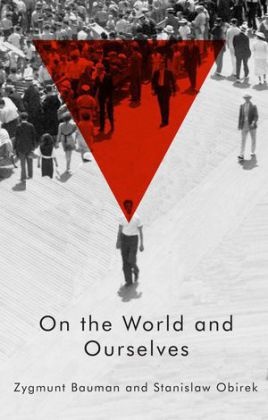Read more
Unde malum from where does evil come? That is the question that has plagued humankind ever since Eve, seduced by the serpent, tempted Adam to taste the forbidden fruit of the tree of knowledge of good and evil. Throughout history the awareness of good and evil has always been linked to the awareness of choice and to the freedom and responsibility to choose this is what makes us human. But the responsibility to choose is a burden that weighs heavily on our shoulders, and the temptation to hand this over to someone else be they a demagogue or a scientist who claims to trace everything back to our genes is a tempting illusion, like the paradise in which humans have at last been relieved of the moral responsibility for their actions.
In the second series of their conversations Zygmunt Bauman and Stanislaw Obirek reflect on the life challenges confronted by the denizens of the fragmented, individualized society of consumers and the form taken in such a society by the fundamental aspects of the human condition - such as human responsibility for the choice between good and evil, self-formation and self-assertion, the need for recognition or the call to empathy, mutual respect, human dignity and tolerance.
List of contents
Preface
I Reveries of Solitary Walkers
II Tangled Identities
III Hic et Nunc
About the author
Zygmunt Bauman, geboren 1925 in Posen, lehrte ab 1954 Soziologie an der Universität Warschau. 1968 ging er nach Israel. 1971 erhielt Bauman einen Ruf auf den Lehrstuhl für Soziologie an der University of Leeds, den er bis 1990 inne hatte. Bauman erhielt 1989 den Amalfi-Preis, 1998 wurde er mit dem Theodor-W.-Adorno-Preis ausgezeichnet. Zygmunt Bauman ist einer der bedeutendsten Soziologen der Gegenwart.
Summary
Unde malum from where does evil come? That is the question that has plagued humankind ever since Eve, seduced by the serpent, tempted Adam to taste the forbidden fruit of the tree of knowledge of good and evil.

